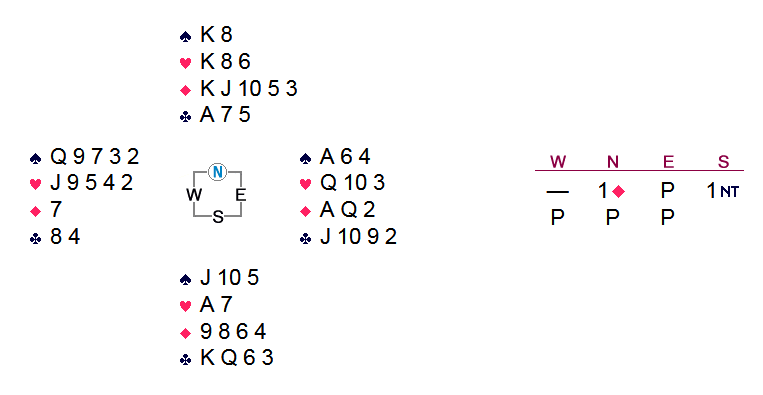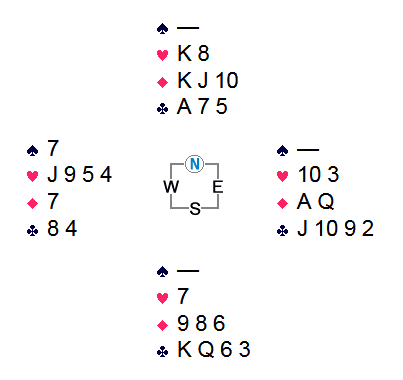

 |
 |
The Best Play of the Tournament
The field in the Swiss Teams at the recently completed Sacramento Sectional
was better than usual. This remarkable deal came up during the critical
fifth-round match between the two leading teams:

I led the deuce of spades (low from odd). My partner captured dummy's king with his ace, then returned the queen of hearts! That was the only way to defeat the contract.
The heart switch was ducked in both hands. Now east reverted to the six of spades, west playing low, and the defenders eventually collected four spade tricks, one heart, and two diamonds, for down one.
Declarer should not have declined the heart lead, because he still could have
succeeded had the hearts split 4-4 or had the honors been arranged even slightly
differently. As the cards lay, however, declarer had no winning option at that
juncture. If south grabs the first heart lead with the ace and plays on diamonds,
east wins the trick and knocks out the king of hearts, setting up west's heart suit.
A second round of spades at any time is ducked by west, who now is in position to cash
five more tricks should he gain the lead.
There is much more to this layout, however. Rather than play on diamonds early, declarer could adopt another tack. Suppose that he wins the first heart lead and plays on spades! West will duck; but another spade lead throws him in with the queen. A fourth round of that suit is cashed as the other hands discard diamonds; but now it is time for west to contribute an expert play of his own in this position:

The last spade winner must not be cashed at this time; for partner, being obliged to guard both minors, would be compelled to shed a heart. That would effectively shut out the heart suit, and the defenders' tricks would be limited to four spades and two diamonds. The winning play is for west to lead the heart nine first, leaving declarer in the same position as if he had ducked the original heart switch. Should declarer play low on that lead, it becomes the setting trick; if he takes it, then the best he can do is to cash his club winners to avoid going down more than one.
East should not have been given the opportunity for his brilliant heart switch to succeed, however. Had declarer played low from dummy at trick one, the contract then could not have been defeated. Try as they might, the defenders could not develop a seventh trick in time.
Note also that for east to have advanced the heart ten at trick two also would have worked, but the lead of a low heart would have destroyed the delicate mechanism that enables west to retain a later heart lead without blocking the suit.

Now that was a noteworthy hand! And that is why I play with Albert.